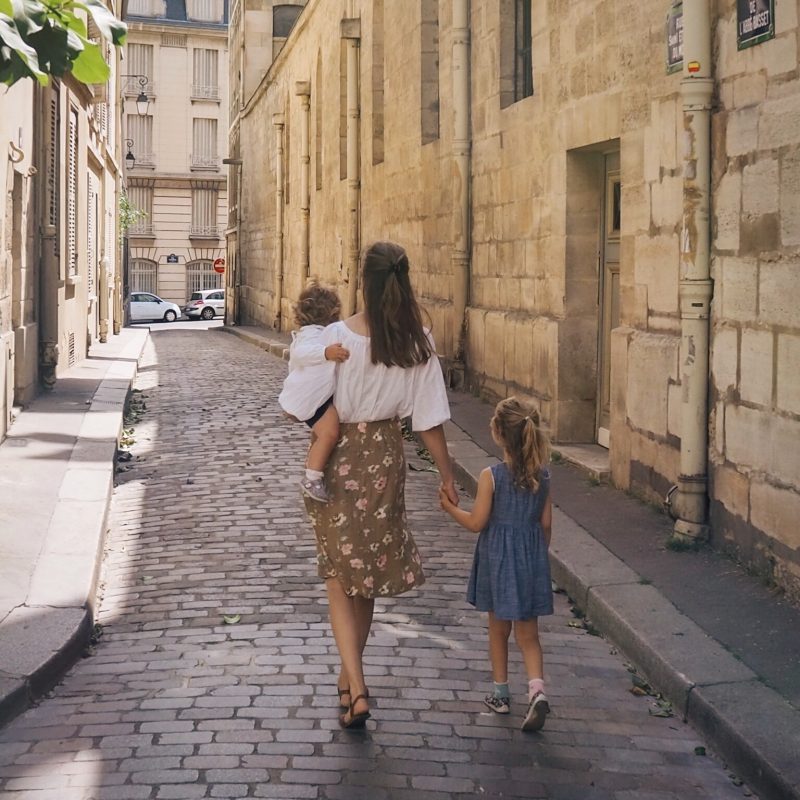
A few months ago, I shared that I had been to the doctor to talk about my struggle with depression for the first time since I first starting experiencing it around seven years ago. It felt rather awkward, admitting that I’m not a permanently perky, happy, calm, sorted person all the time. It’s easy to say things like “I’m not perfect”, but to be really specific about a struggle with mental health feels more vulnerable than I had realised it would.
So, why did I do it? No one asked me to share this part of my life, or was expecting it of me—in fact, a very loud voice in my head told me that talking about it on Instagram would make it look like I was seeking attention, like I was oversharing, talking about myself too much. I chose to ignore this voice, because I know that hearing about people’s experiences with mental health struggles and therapy helped me a) realise there was a name for what I was experiencing, b) that I wasn’t alone, and c) prompted me to seek therapy, when the timing was right and I felt ready.
Intentional vulnerability—and by that, I mean sharing our weaknesses and struggles for the greater purpose of helping others feel safe, encouraged, supported, seen, less alone—takes great strength and courage. And I don’t think we’re all called to do it, all the time. I had an incredibly loving and supportive upbringing, and I am seeking therapy to help me re-set some mental patterns and habits that formed during an incredibly difficult time when the perfect storm of grieving for my dad, being the sole breadwinner/financial stress, and looking after a newborn, along with a whole lot of uncertainty about what “home” meant to me, sparked post-natal depression. I wasn’t able to name it as depression for a long time. I wasn’t able to admit the darker elements of what I’d felt to myself or anyone around me. I wasn’t ready to seek help and healing in the form of therapy for many years because we were moving around, time felt too scarce, income too insecure.
Intentional vulnerability—and by that, I mean sharing our weaknesses and struggles for the greater purpose of helping others feel safe, encouraged, supported, seen, less alone—takes great strength and courage.
But now that I’m in the privileged position to be able to relax a bit, and examine my heart, now that I feel safe and able to undo some of the damage of all of those difficult experiences (and, as my dear and wise friend said, learn to appreciate all that those years taught me), I want to give back. I want to honour all of the courageous women and men who helped me on my journey by sharing theirs, by doing the same.
I wasn’t really sure what to expect, but my Instagram Stories on mental health prompted a powerful response. Several people got in touch saying that hearing me share that I was starting therapy encouraged them to make appointments with their GPs to do the same. That, right there, is the beautiful power of intentional vulnerability; I remember these messages every time I ask myself whether or not I should share something that feels a little scary. “Could it potentially help someone else?” is the question that guides everything I share, now.
“Could it potentially help someone else?” is the question that guides everything I share, now.
A few months later, after my first therapy session left me feeling exhausted and drained (in retrospect perhaps I shouldn’t have scheduled our house move for the same day as my first therapy session—hmm, past Sophie, what were you thinking?!), I asked my Instagram community “What do you wish you’d known before starting therapy?”. (My own answer would be “Clear your schedule and give yourself time for a nap after sessions.”) The responses I got were absolutely incredible, and make me tear up every time I read them.
What strikes me as I re-read them all are the common threads that run through the advice people told me they’d give their past selves: This is hard work. It’s worth trying. It doesn’t solve everything. You need to find the right form of therapy, and the right therapist for you. Give yourself time to rest and process afterwards. Be kind to yourself. This will take a while. It gets better before it gets worse.
The fact that all of these intimate, personal experiences have so much in common proves how universal these feelings and experiences are. We tend to feel so alone in our brokenness, our imperfections, our struggles, but that couldn’t be further from the truth. This is the truth you need to hold on to, always: you are not alone, friend.
I’ve kept the responses anonymous to respect the privacy of my community, but I wanted to say a BIG thank you to everyone who shared their experiences and thoughts so very generously with me—what an honour to be entrusted with your stories. I hope these insights can help anyone out there who’s on their own journey towards healing.
What do you wish you’d known before starting therapy?
“Even though it feels exhausting after your appointment, it means you’re processing your emotions.”
“How much of an investment it is in yourself, but one which doesn’t come easy.”
“The space needed to process what comes up on the days of sessions is one I wish I’d known.”
“That it’s really hard work. And to bring tissues, because I once depleted my therapist’s supply.”
“Plan to keep your time free afterwards.”
“Don’t pressure yourself to ‘do your homework’.”
“How exhausted I would be afterwards.”
“That it’s okay if you choose someone new after a session or two. Check the fit.”
“It will not solve everything.”
“It DOES work, especially with someone to guide you (and hold you to it)—don’t give up.”
“Just how amazing the results can be if you stick with it!!”
“Well, my therapist wasn’t very good. She did great harm. I wish I’d known to be more choosy.”
“It takes time, and you need to be assertive with your needs. These can be overlooked by a strict protocol.”
“To give myself an hour of quiet reflection post therapy. Every time.”
“That it’s okay to cry during every single session.”
“That it’s okay to not want to go, but go anyway.”
“Share the deepest stuff ASAP—the longer you wait, the harder it is, in my experience.”
“That it takes longer to heal than you think, and it’s not linear. But that’s all A-OK.”
“What type I needed! A good therapist will help guide you. I haven’t been lucky with that.”
“That it wouldn’t always be helpful.”
“That even though you’re there and doing the work, the progress is not necessarily linear.”
“That I had to be really, really honest with myself and the therapist, or it wouldn’t work.”
“It’s more than the allocated hour—practising and committing to doing the work between sessions is important!”
“That it can take a long time. The therapist doesn’t really give you answers.”
“I did some hypnotherapy when I was learning to drive, and I had no idea I’d feel quite so raw afterwards.”
“That it helps to put your expectations out there, ask for what you want out of therapy.”
“That healing, like everything, is a process and takes time. That it’s more about undoing than doing, and you’ll feel raw and exposed a lot—that it will feel worse before it feels better. And that you need a lot of rest and being gentle with yourself. Handle your inner little one with love. Go gently.”

If you’ve been through therapy, what’s one thing you wish you had known about the process? I’d love to know, so please do share your thoughts in the comments below, if you feel able.
As one of my wise Instagram friends put it, go gently with yourself and each other, friends.
Sophie xo


One comment